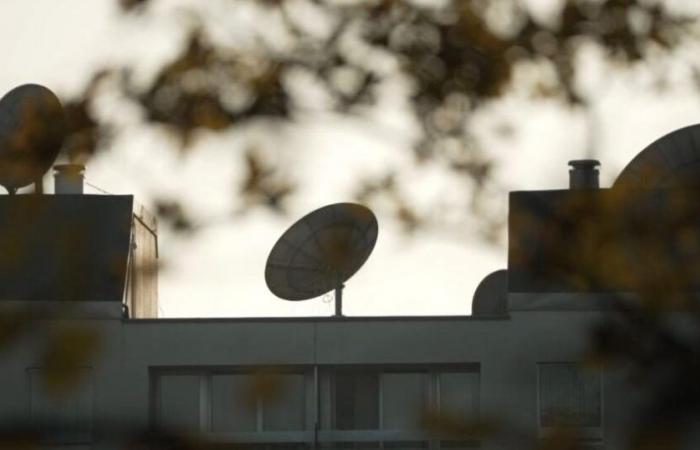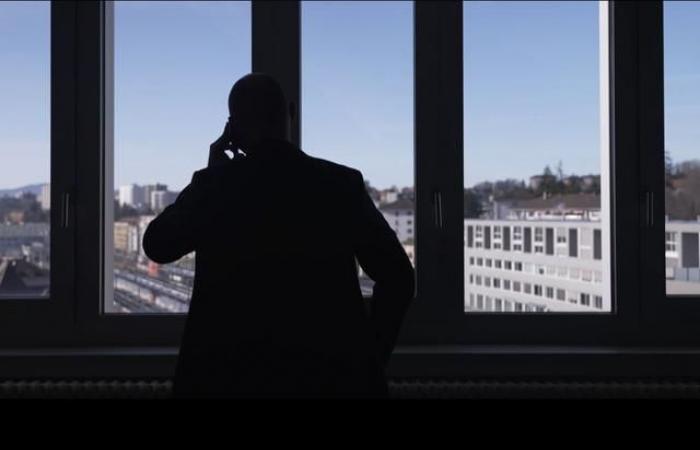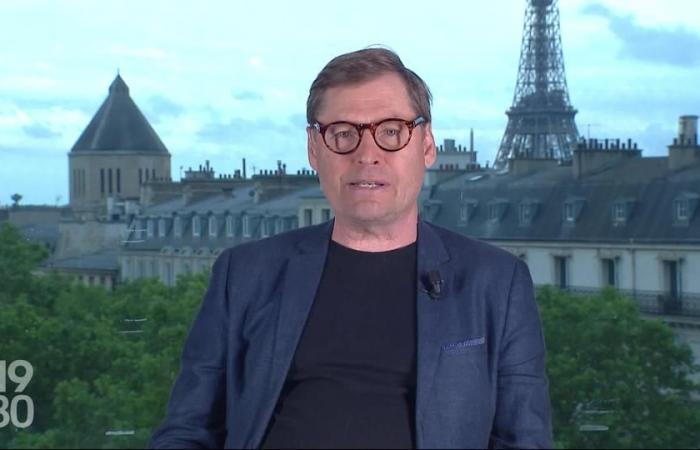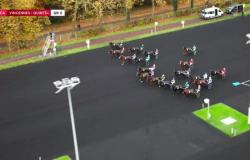Russian spies are strengthening their presence in Geneva. Without cantonal authorization, Russian agents placed new satellite dishes on their diplomatic buildings. From Geneva, Russian spies carry out intelligence operations, sabotage and assassination attempts, reveals an RTS investigation.
Near the Place des Nations in Geneva is the permanent mission of the Russian Federation to the UN. These diplomatic buildings are under high protection: a perimeter wall several meters high, surveillance cameras and armed guards prevent access.
The mission officially has a diplomatic vocation, but Russia has installed spy antennas, listening systems and satellite dishes which are barely visible from the street. The program Mise au Point used satellite images to understand the usefulness of these antennas.
Antennas for spying
On the roofs of the permanent mission of Russia, there are a total of seven large satellite dishes. There are also several listening devices hidden under a sort of container. “These are clearly antennas used for espionage. There is no need for such a device for classic diplomatic messages. These antennas are used to spy on electronic communications, but also on satellite communications,” analyzes the historian Adrian Hänni, secret services expert at the University of Graz.
Switzerland is a hot spot, a rear base for Russian spies active throughout Europe
Thanks to archival images, it is possible to establish that these satellite dishes are largely new. Russia therefore seems to be developing its intelligence activity on Swiss territory, confirms Adrian Hänni: “Russia has become much more offensive in terms of espionage in recent years. (…) Switzerland is a hot spota rear base for Russian spies active throughout Europe.”
Four illegal installations?
To find out if these antennas are legal, Mise au Point contacted the Territorial Department of the canton of Geneva. The latter indicates that the Russian mission is a diplomatic structure which enjoys privileges, immunities and facilities in accordance with international law.
However, cantonal rules remain valid regarding building authorization. Any parabolic antenna with a diameter greater than 90 cm is therefore subject to authorization. However, “the Russian Mission has filed a request since 2006,” specifies the Canton.
Satellite images actually show the construction of a – legal – antenna between 2006 and 2007. However, Russia did not stop there: between 2006 and 2009, another satellite dish was installed, then yet another in 2012 , then two additional antennas until 2024. All have a diameter well over 90 cm and should have been the subject of a request to the Canton.
In total, there are four antennas built without cantonal authorization on the roofs of Russian diplomatic buildings. The Canton indicates that it has not been informed of any exception granted by the federal authorities. These four antennas would therefore most likely be illegal.
Undercover spies
Asked to react to these observations, the Russian embassy indicated that it “firmly disagrees with such statements and considers them to be an additional attempt to arbitrarily demonize Russia and Russians.”
“We reaffirm our position that the diplomatic staff of our embassy is solely focused on the task of maintaining constructive cooperation with the authorities of the host country in the current difficult circumstances,” the press service of the Russian Federation clarifies.
However, the Federal Intelligence Service (SRC) claims the opposite. In official reports, it indicates that a third of Russian diplomats in office are in reality spies. This represents nearly 80 individuals in the territory.
The Europeans have taken political measures, visible measures. At the SRC, we work more behind the scenes
Furthermore, Swiss media have revealed several espionage cases in recent years. Russian agents notably carried out cyberespionage operations against the high security laboratory in Spiez (BE). According to the newspaper Le Monde, Russian spies based between Geneva and Annecy have also carried out sabotage actions and even assassination attempts in England and Eastern Europe.
This year again, a “fake” Russian diplomat stationed in Bern was arrested while seeking to obtain precision munitions and laboratory equipment capable of manufacturing chemical or biological weapons.
>> Rewatch the 7:30 p.m. topic on the arrest of a Russian diplomat in Bern:
>> Read also: Russian diplomat arrested in Bern before Bürgenstock summit
Swiss counter-espionage “not inactive”
Since the start of the war in Ukraine, European countries have taken strong measures against Russian spies. They expelled more than 600 diplomats accused of espionage. Even Austria, a neutral country, sent back several dozen.
These expulsions constitute a significant loss for Russia and its capabilities to carry out offensive operations. Indeed, spy diplomats are often handling officers who manage agents in the field. They have a network of sources that are difficult to replace.
In Switzerland, there is no official announcement of expulsion of diplomats or undercover spies. “The Europeans have taken political measures, visible measures. At the SRC, we work more behind the scenes,” explained SRC director Christian Dussey when presenting a situation report in October.
“We are not inactive. On the contrary, we have strengthened our action, Switzerland is more aggressive in terms of counter-espionage,” he said. The SRC is, however, limited in its operations and must prioritize its commitments. In total, the SRC has more than 420 employees, of which around 60 are dedicated to counterintelligence. And it takes around 10 to 15 agents to monitor the movement of a spy on Swiss territory.
In its 2024 report, the SRC summarizes the situation as follows: “Switzerland remains a privileged area for espionage and other intelligence activities. The fact that the anti-espionage system is less developed there compared to other European countries plays a role.”
A situation of weakness that Russia was able to use to its advantage. While Russian intelligence services are being tracked and put under pressure throughout Europe, Switzerland has become indispensable for Vladimir Putin’s spies.
>> Watch the interview in 7:30 p.m. with Sergei Jirnov, former KGB spy, on Russian espionage affairs in Switzerland:
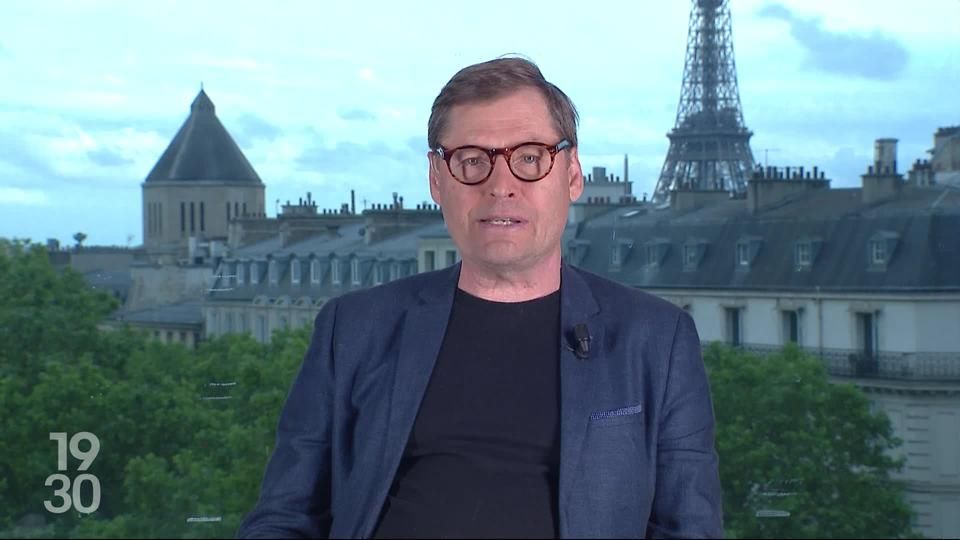
François Ruchti/jop
Subject developed in Focus Sunday evening

